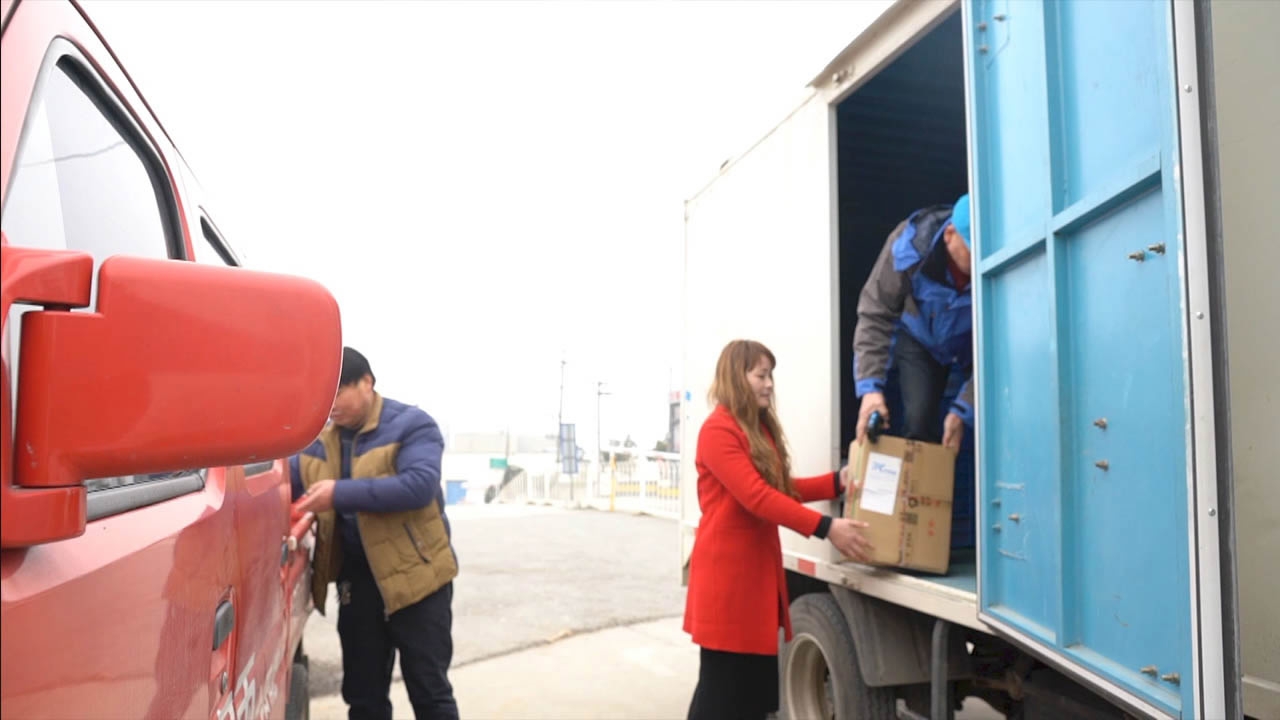
Tech & Sci
09:52, 27-Feb-2018
Tuk-tuks, donkeys and boats take e-commerce rural
By Han Peng

Every day, Zhang Jingliang, now in his late 40s, gets up early to reach the port of his village before 8:00 a.m.
He waits for a truck which brings parcels to his village from the town center every day.
Zhang lives on a picturesque island which is completely surrounded by the mighty Yangtze River. His village, Xuba in Tongling, Anhui Province, is one of the very few islands in China that has no bridges, meaning people solely rely on the ferry boats for transportation.

Boat is the only means of transport for residents in Xuba to come in and out of the villagers. /CGTN Photo
Boat is the only means of transport for residents in Xuba to come in and out of the villagers. /CGTN Photo
Remote and hard to find on the map, the village seems like an escape from the modern hustle and bustle – but now, China’s e-commerce giants like Alibaba and JD.com are cooperating with local governments and business people, like Zhang, to plug these villages into its vast online economy.
Media reports that online sales in rural areas – around 45 percent of the Chinese residents still live – are growing more rapidly, doubling the growth of urban areas in recent years.
Last mile delivery remains a headache in Xuba, as heavy trucks are not allowed to board the ferry boat.
“Our family runs the only household appliances store in the village, and we have a small truck to carry cargo around. That one is allowed on the boat. As physical stores are facing more and more competition from e-commerce, last year, we decided to change our business – helping big delivery firms complete the last mile delivery,” Zhang said.
Last winter, Zhang became one of the hundreds of thousands of the so-called "rural partners" for the leading online retailer Alibaba.
His small truck has become a money-making machine.
“Since I started this business a year ago, there are no weekends or holidays anymore, because parcels are coming in every day,” Zhang told CGTN.
Each day, he crosses the river with the truck on the ferry boat, gets all the parcels from the courier's truck and returns to his home, which he now uses as a local distribution center.
There, he maps out the fastest route to deliver the parcels.
Even his small truck struggles on the rural roads, meaning he has to use all possible means of transport – including riding a donkey or a tuk-tuk, and from time to time, on foot.

Reporter taking a ride on Zhang’s tuk-tuk motor-tricycle, which he uses on the bumpy roads for last mile delivery. /CGTN Photo
Reporter taking a ride on Zhang’s tuk-tuk motor-tricycle, which he uses on the bumpy roads for last mile delivery. /CGTN Photo
With around 30,000 villagers on the island, Zhang said he has to deliver at least 50 parcels per day and it takes him at least five hours to complete his deliveries.
In just a year's time, he's been to the home of almost every villager.
“We used to trade only with nearby towns, but now we are trading with the whole world. From fashionable clothes for kids to French wine for me, now we can buy goods that others don't sell in our village, while at the same time, sell what others don't buy, without leaving my home,” a villager told CGTN.
China’s e-commerce giant Alibaba announced it has invested 10 billion yuan (around 1.5 billion US dollars) to complete 100,000 rural service stations like Zhang’s by 2019.
990km

SITEMAP
Copyright © 2018 CGTN. Beijing ICP prepared NO.16065310-3
Copyright © 2018 CGTN. Beijing ICP prepared NO.16065310-3